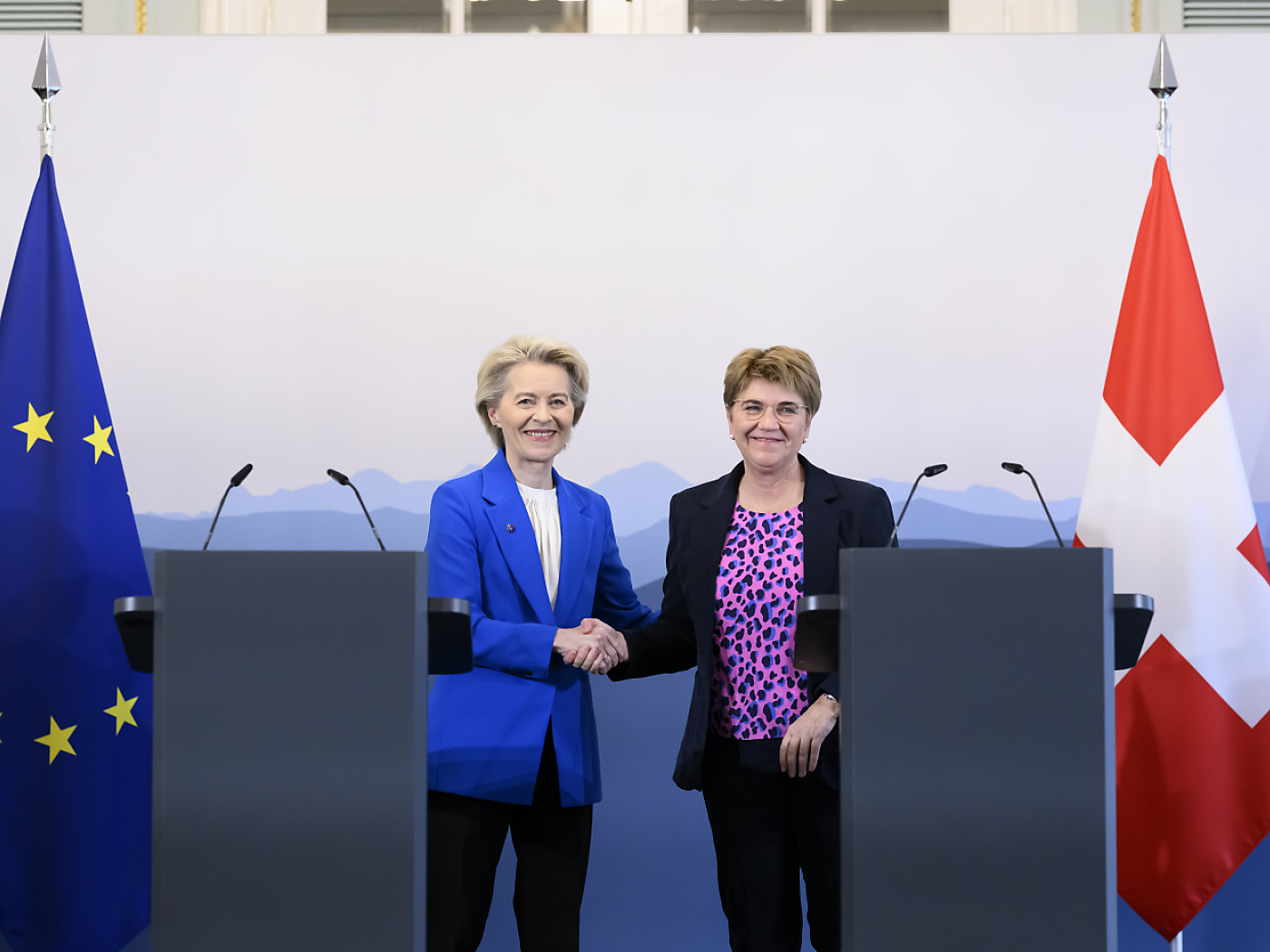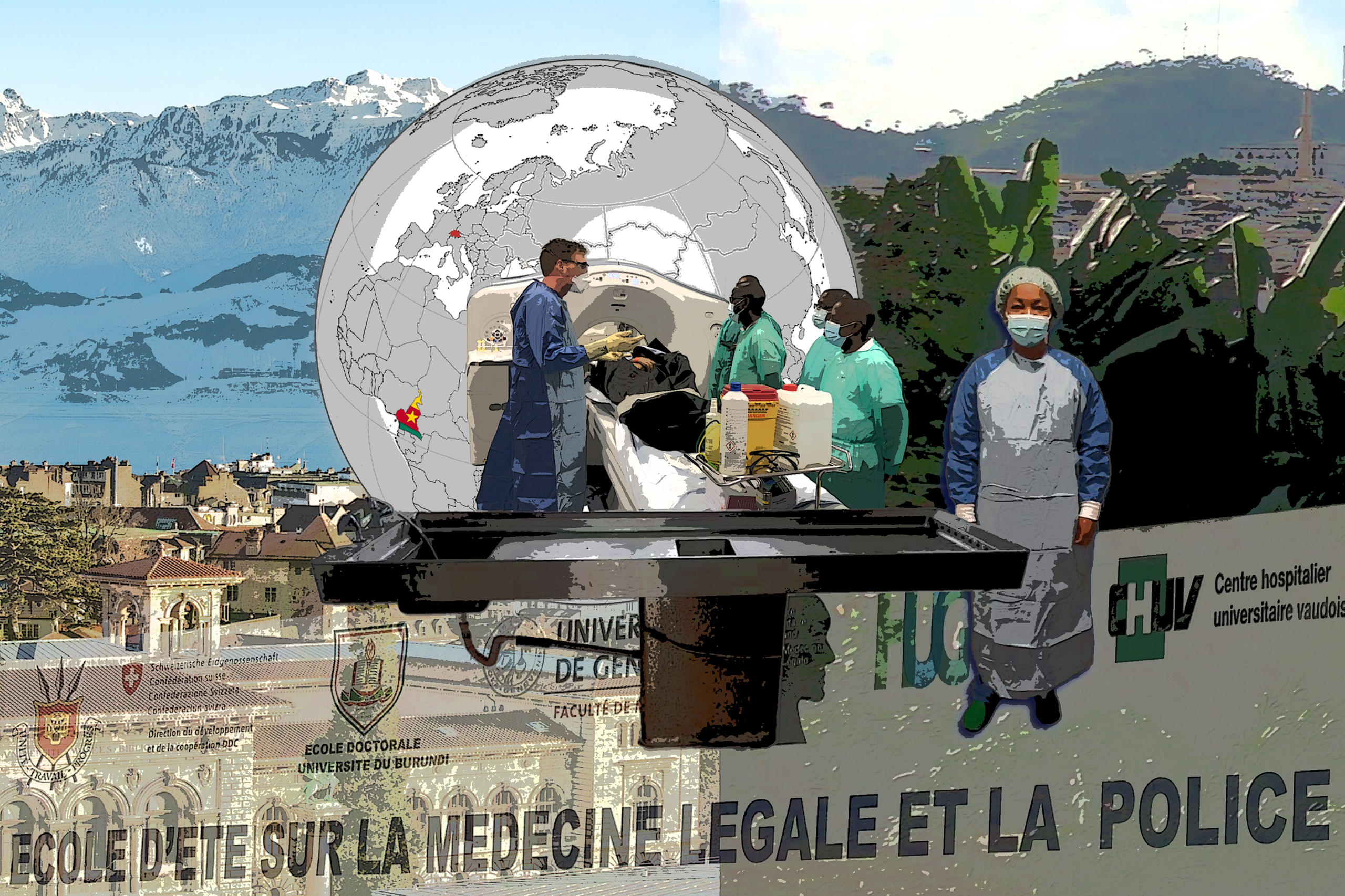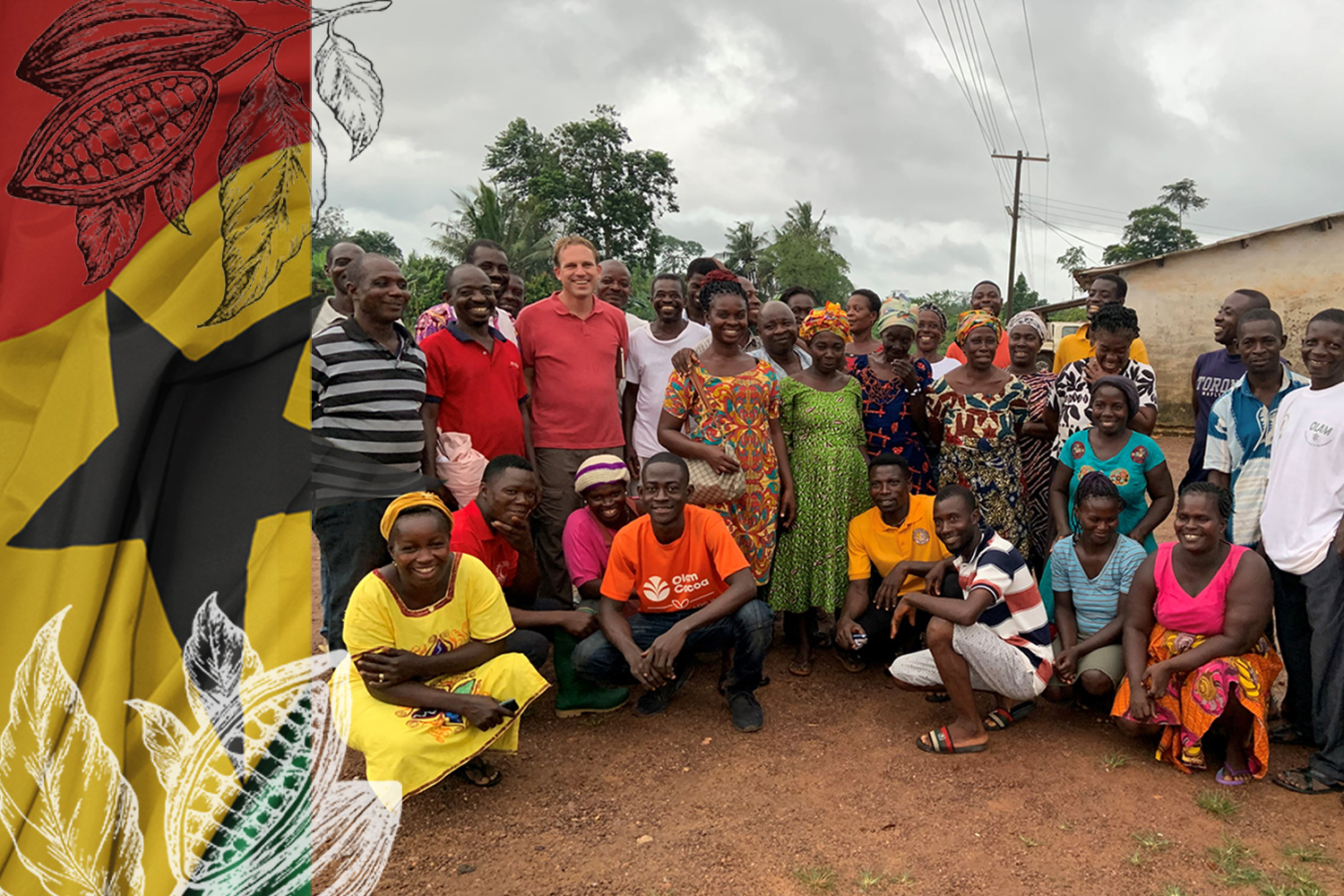Swiss innovator breaks sexual taboos in South Africa

Be it on contraception, menstruation or sexually transmitted diseases, Karin Stierlin’s Love Land app provides a new framework for teaching young people about sexual health. Is it an idea with global potential?
Dark clouds gather over the palm trees of the sun-soaked cluster of islands. The Fogg, a fierce and aggrieved creature, full of anger and ignorance, is holding the 12 islands and their inhabitants captive. With his bothersome little ghosts, the Fogglets, he shrouds everything in a thick fog. His goal is to prevent any open discussion on sexuality and health.
Fifteen-year-old Sibulele is fully absorbed in the fight against the nasty monsters. Her weapons are knowledge cards and a diary in which she collects information. “You-Be-You is my favourite island,” the high-school student confides, as she guides her avatar safely through the adventure-filled island world. “I’ve learnt a lot about myself here.” You-Be-You is part of the archipelago in the Love Land app and is dedicated to topics such as self-confidence and personal development.
Digital adventures help break the silence
Sibulele attends school in Langa, Cape Town’s oldest townshipExternal link. Here, a group of young people are getting first-hand experience of an educational innovation that seeks to change their mental and sexual health skills in a fun way.
The woman behind the app that has so captivated the students is Karin Stierlin, from Zurich. She is the founder of the Taboobreaker AssociationExternal link, with branches in Switzerland and South Africa. An expert in sexual education, she wants to use new technologies to overcome the silence and discomfort that surround sexual health issues in many places.

With Love Land, she has created a tool that teaches 10- to 18-year-olds about topics such as contraception, menstruation and sexually transmitted infections. Stierlin provides the stories, characters and themes; a team of game developers from Cape Town turns them into digital adventures for teenagers.
“One of the biggest challenges was finding a game design team that had both the creativity and the sensitivity for the project,” explains Stierlin. It worked out on the fourth attempt.
Children everywhere ask the same questions
The idea for Love Land was born several years ago in Switzerland. As a professional sex educator in the Zurich area, Stierlin was frustrated at what she saw as a lack of innovative learning tools to teach the subject in an age-appropriate way. Taking matters into her own hands, she designed a board game with different thematic islands.
Undeterred that no educational publisher wanted to implement her idea, she decided to produce and print the board games herself. A radio feature about her project sparked a raft of enquiries from teachers across Switzerland.
“A key moment for me was my trip to Indonesia,” says Stierlin. Thanks to endowment funds, she was able to test the board game with young people in a different cultural context. The conclusion: young Indonesians are concerned with exactly the same issues as young people in Switzerland.
But the board game has its drawbacks. Cards get lost, it is time-consuming to produce and even more so to update. Also, a teacher must always be on hand to guide the game and ensure a safe space for playing. Plus, a board game is difficult to scale globally. Stierlin had a digital answer to all of these challenges: the idea of an app was born.

More
Newsletters
When sense of shame combines with cultural taboos
Stierlin first travelled to South Africa over ten years ago, on behalf of another foundation. Today, she lives with her partner in Cape Town. She appreciates the beauty and diversity of the country and the warmth of the people, but she is also aware of the major challenges facing the country.
Nowhere in the world is inequality between rich and poor greater than in South AfricaExternal link. The country has one of the highest crime ratesExternal link in the world. It is also the sad leaderExternal link in terms of HIV prevalence.
Young people’s prospects are marred by 46.5%External link youth unemploymentExternal link. The high number of teenage pregnanciesExternal link and lack of open communication on sexual issues play their part in preventing young people from realising their potential.
When feelings of shame combine with cultural taboos, a topic is readily swept under the carpet. Many teenagers often have no choice but to rely on information from social media.

A protected space for acquiring the necessary knowledge
This is where Stierlin’s app comes in. Young people can acquire knowledge directly without resorting to dubious sources. They can decide for themselves which thematic island to visit. On Goomi Goomi Island, for instance, they learn how to use a condom correctly; on Caveman Island they find out about the male sexual organs; and on Body Bugs Island they discover how to protect themselves from sexually transmitted diseases.
“What I especially like about Love Land is that I can find things out without having to talk to anyone,” says Sibulele, not taking her eyes off her smartphone screen. Gamification, or the application of typical game elements in non-game contexts, turns the acquisition of knowledge on these sensitive topics into an exciting adventure.

Innovative sex education with great potential
Students at Zurich University of the Arts extensively tested the app in advance. Their feedback was then incorporated into updates.
Love Land’s train-the-trainer programme is currently being tested at various pilot schools, like the one in Langa township.
Under the leadership of Cathy Ward, a psychology professor at the University of Cape Town, a team of researchers examined the app from all angles as part of a feasibility study. In Ward’s view, access to accurate, easy-to-understand and comprehensive sex education is the key to preventing unwanted pregnancies and sexually transmitted infections.
The professor is convinced of the app’s effectiveness. “The young people we tested the game with found it fun and engaging,” she says, “and it has huge potential to improve the lives of many young people and parents around the world.”
Funding from a foundation in Ivory Coast
After the roll-out in South Africa, the app is due to be launched in other countries.
“After all, this is a global problem,” says Stierlin. “It’s an uncomfortable topic in Switzerland, too.” Content and languages can be added to the app on an ongoing basis without too much effort. In addition to English and Afrikaans, there is also a French version – requested and funded by a foundation in Ivory Coast.
Whether this Swiss idea with an Indonesian touch and South African flair can also break taboos elsewhere will above all be a question of financial and human resources. For further roll-outs, not least in Switzerland, Stierlin is looking for foundations to finance translation into German. A teacher-training college has also shown interest in testing the train-the-trainer programme as part of a professional development course.
When asked where she sees the future of Love Land, Stierlin is ambitious. “If the concept has proven itself in a few years,” she says, “it would be great if it could be taken over by a large international organisation – one with the means to scale the project up further.”
Edited by Balz Rigendinger. Adapted from German by Julia Bassam/gw.

In compliance with the JTI standards
More: SWI swissinfo.ch certified by the Journalism Trust Initiative











You can find an overview of ongoing debates with our journalists here . Please join us!
If you want to start a conversation about a topic raised in this article or want to report factual errors, email us at english@swissinfo.ch.